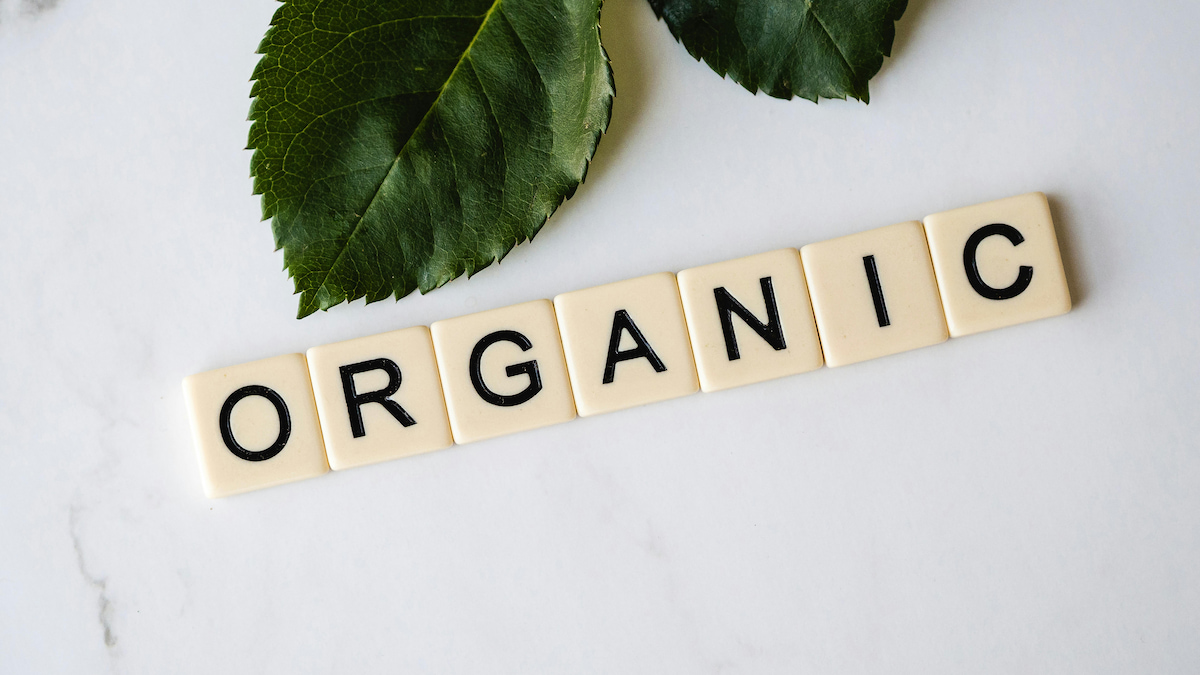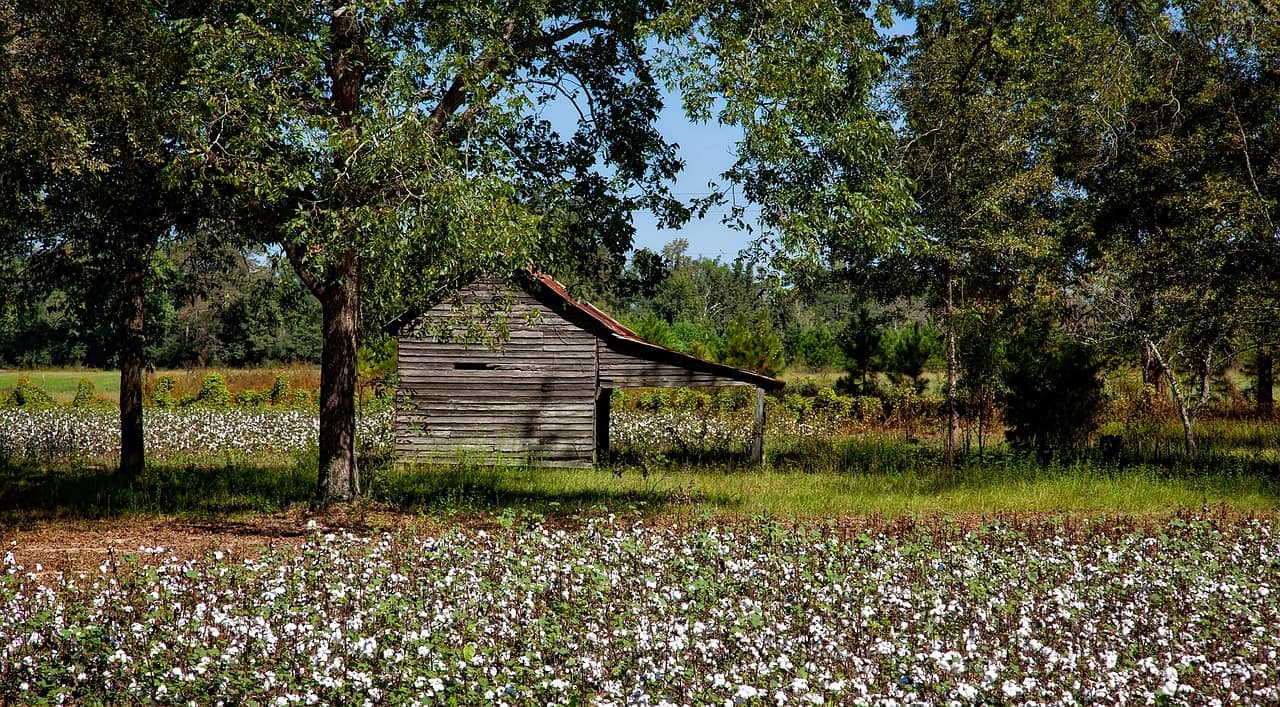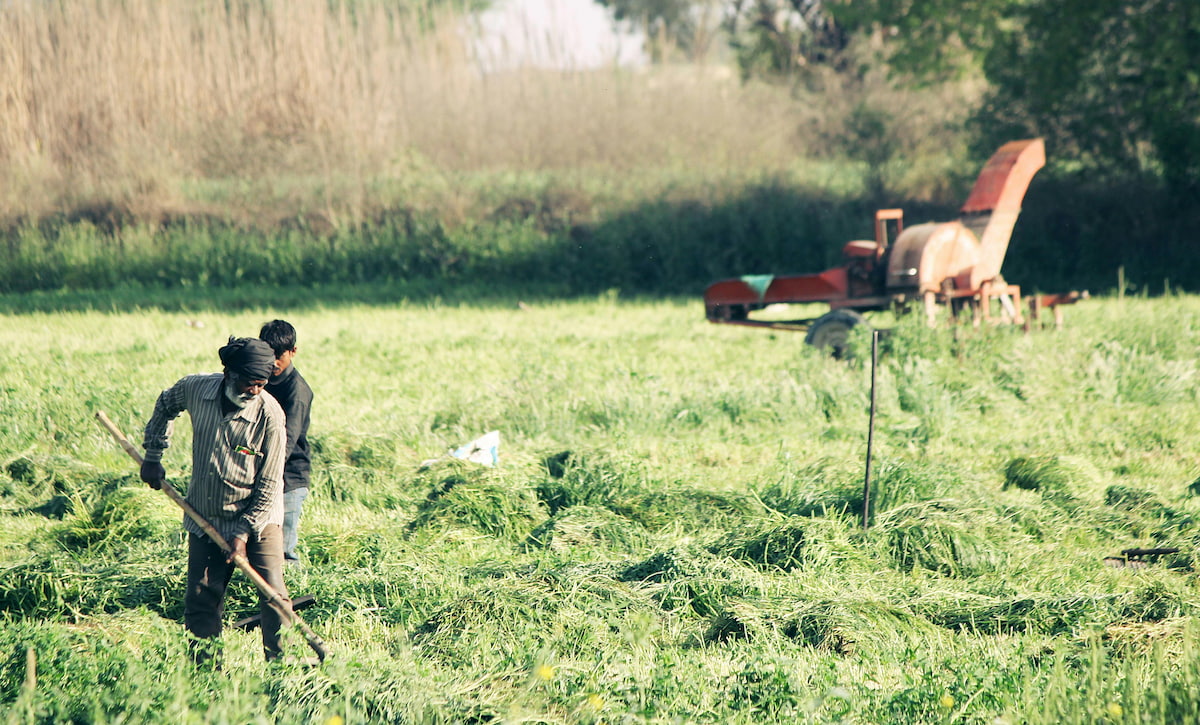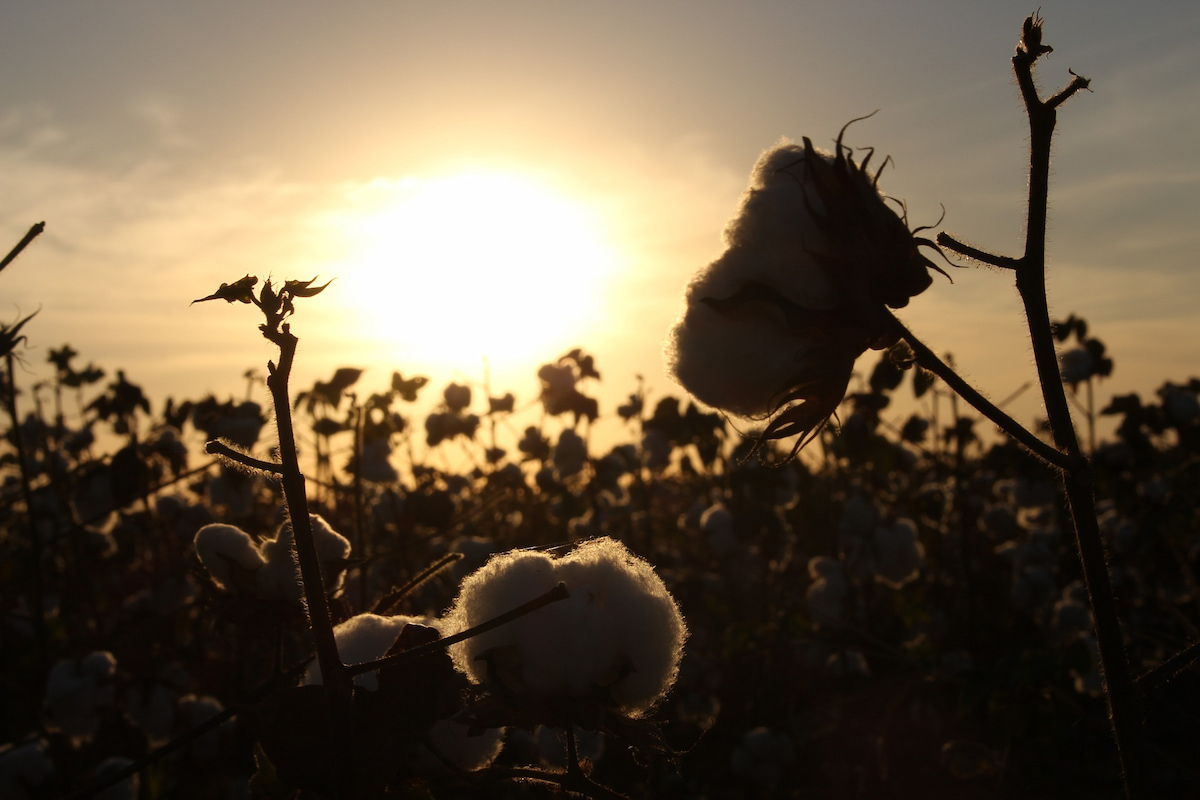Demand for organic products continues to grow, and with it, organic farming worldwide. Younger generations are usually more environmentally conscious than their parents, and more concerned with how the products they consume are made. It’s difficult to calculate how much organic food and clothing is made each year, so precise numbers should be taken with a pinch of salt, but there is agreement that the total has been increasing for years now. With clothing, there are now lots more companies selling clothes made from organic cotton, wool, linen, hemp and flax.
The first thing to clear up is: What makes products organic? The criteria differ depending on the countries, as the farms will be certified as organic by different governments, or third-party organizations. In the USA, it’s done by the US Department of Agriculture (USDA), and the Global Organic Textile Standards (GOTS) certifies the clothing process post-harvest.

As a minimum, organic farms must avoid most chemical substances for things such as pest control and fertilizer (a few are permitted). Genetically modified organisms and hormone treatments are also banned. In addition, certain practices to protect the environment must be employed, such as crop rotation, which contributes to the health of the soil.
Why Go Organic?
So what’s the point? For most of us, when we think of organic products, the first thing we think of is food, and we know some of the benefits of organic food. That they’re made without chemicals avoids residues being left on our food, which makes what we eat healthier. Tests have also shown that these chemicals can strip away some nutrients– organic food can be higher in Vitamin C and Iron, among other vitamins and minerals.
How else does organic farming benefit us, and do these benefits transfer to other products like cotton and other fabrics? Let’s look at some more of these benefits, and how they apply to clothing, to help you decide if it’s worth changing your shopping habits.

More Benefits of Organic Farming
We know that the chemicals used in pesticides and fertilizers pollute, and can have adverse effects on food, but there are other consequences too. Here are some of the benefits of organic farming you might not have thought about.
Protecting Workers
The health of the farmers and other workers can be adversely affected by long-term exposure to chemicals. According to the Environmental Justice Foundation, conventional cotton production accounts for 6% of the world’s pesticide use, and 16% of insecticide use, despite only using 2.4% of cultivated land.
Farmers all over the world have been affected, and many have died, especially in India, the world’s largest producer of cotton. Around 200,000 people a year die from pesticide poisoning. Organic farming also places importance on animal welfare, helping to cut down on animal cruelty.

Upgrades for Clothes
Traditional methods have consequences for clothing production which are not just limited to the growing process, but also the treatment and dying. Organic cotton often lasts longer, because chemicals can weaken fibers over time. It’s also more hypoallergenic– unlikely to cause irritation or allergic reactions. The chemicals found in pesticides, bleaches and dyes can be unpleasant for the skin if found in your clothes.
Water Conservation
As well as adding to pollution, chemicals can affect the health of the soil, and curtail biodiversity. This has dramatic knock-on effects, and not only on the crops. The global lack of fresh water is already a huge problem in certain parts of the world, and the situation is only going to get worse. According to the WWF, it takes an astonishing 2,700 liters of water to make a single t-shirt– enough to sustain one person for 900 days!
Healthy soil retains more water, which means farmers can rely much more heavily on rainfall to water their crops, massively cutting down the water used in production. What’s more, the water used is not contaminated by chemicals, aiding the health of any humans or wildlife that live nearby. Glyphosate is one chemical which commonly contaminates water supplies during traditional cotton farming, and can harm humans and animals. Healthy soil also stores more carbon, benefiting the environment in other ways.

Are There Any Disadvantages?
Only one significant one– it costs more to produce. This is why the vast majority of cotton production is not yet organic. Firstly, the yields are smaller without chemical fertilizers or genetic alteration. Also, natural pesticides often cost more, or are less effective, resulting in more crops being lost to pests.
Being certified as an organic farm also costs money– someone has to pay for the organizations that carry out the certification. All these costs are inevitably passed on to the consumer, which is why organic clothing costs more.
Organic cotton can also be of inferior quality in some respects. Its fibers may not be quite as smooth or strong as with traditional cotton. The difference is rarely noticeable, but it’s something to be aware of.
So Is It Worth It?
If you’re concerned about the environment, then without a doubt it’s worth it, given the reduction in pollution and water consumption. Despite the recent increase, less than 2% of worldwide cotton production is organic, and for the environment’s sake, we need this number to go up.
The benefits aren’t purely altruistic though, since organic fabrics are purer, which has other benefits. Organic clothes are less likely to cause skin irritations, and are likely to last longer than their non-organic counterparts, which means you’ll recoup some of the extra outlay over time. The extra purity also makes them more breathable, which helps with temperature regulation.

For those struggling to make ends meet, this might not be enough to get you to make the switch, but the important thing to take away from the rise of organic clothing is that we need to change our shopping habits. Fast fashion is having a devastating effect on the world, and as a society, it’s essential that we change. If we can all buy half as many clothes, we can spend a little more on those we buy. This change in demand will encourage manufacturers to change their methods, which can have a massive impact around the world.
At Wordans we offer unrivaled variety– organic and recycled cotton are just two of many materials you can find in our range of apparel, accessories, and promo products. Visit our Instagram @wearewordans to see our products in action.












